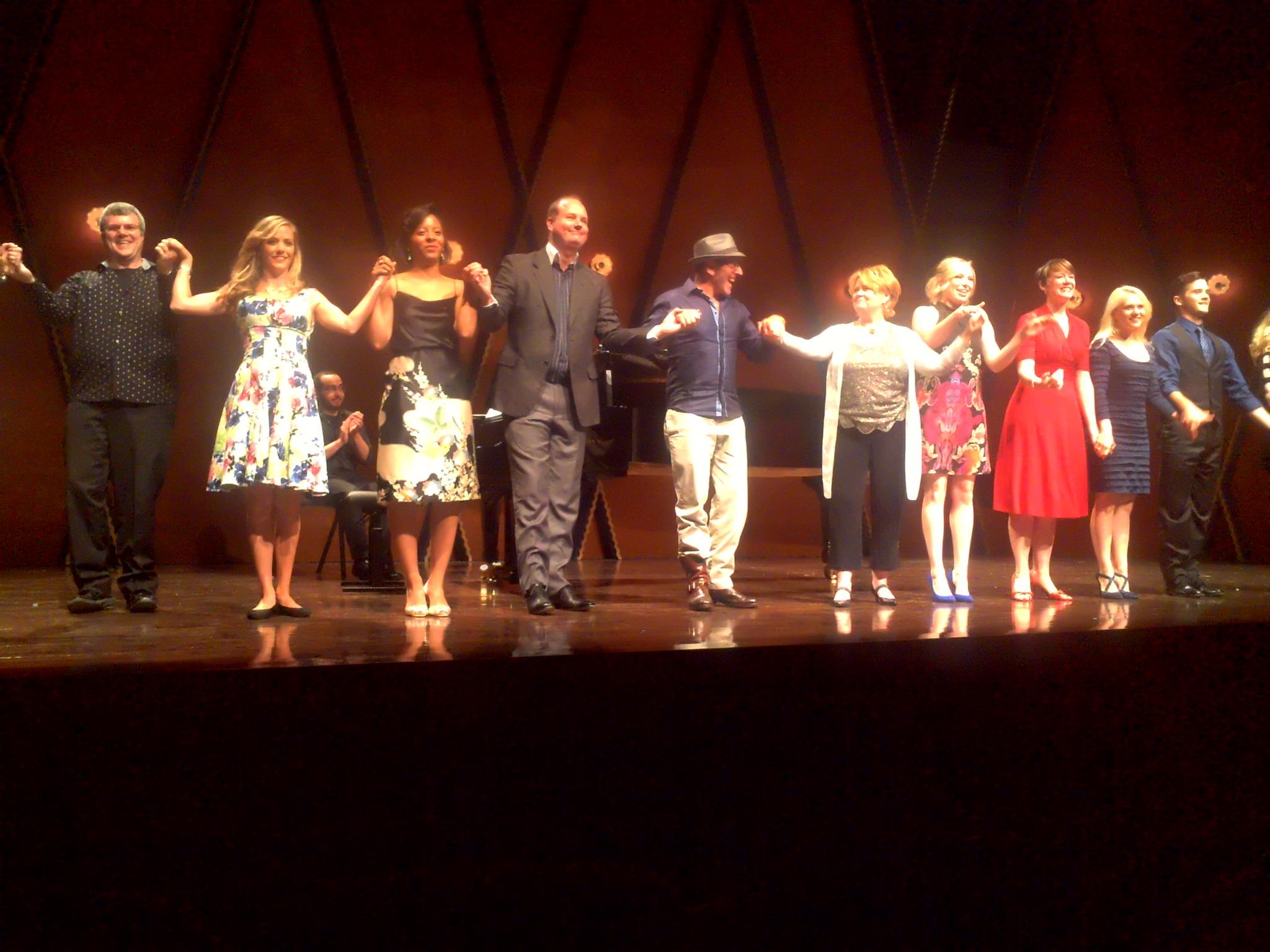America has left an indelible mark on the world of vocal music, thanks in no small part to composers like George Gershwin and Irving Berlin, among others. The American song genre can be difficult to define, though, since it pulls from influences from around the globe. TCU’s Festival of American Song recently took the plunge into that broad musical field by pulling in one of most prolific cross-genre composers alive today, Ricky Ian Gordon, and putting on a hell of a show last Saturday at TCU’s PepsiCo Recital Hall.
Over the course of the program, 11 vocalists took the stage, accompanied by the Fort Worth Symphony Orchestra pianist Shields-Collins “Buddy” Bray. Before the late evening concert began, Gordon gave a few opening words. He credited his mother, who forfeited her own career as a singer to raise him and his siblings, as his inspiration and closed with his perspective on poetry’s place in song.
“Poetry to some people is indecipherable,” he said. “But to me it means love. It’s where I turn when my life is in disarray.”
The opening song, “Heaven,” featured bright, celebratory belting by tenor Anthony Fortino over upbeat hymn-like chords. There was no shortage of theatrics in Fortino’s performance as he made his way over to Bray, resting his arm on this pianist’s shoulder at one point during the performance.
“Just an Ordinary Guy” was replete with jazzy interludes and pithy humor. Soprano Alison Whitehurst masterfully rendered the conflicting emotions of the tune through voice and body language. The opening line “He’s just an ordinary guy” took on different meanings throughout the work. Set to a 1920s-esque strolling piano backdrop, Whitehurst was flirtatious and playful as she gazed out to the audience in the song’s beginning. As she crooned about her lackluster lover, her drooping tone, (sometimes half speaking) captured a complicated mix of love, passion, and disdain. The lofty words and the tone of her rendition were often at odds, manifesting the complexities and subtle nuances of romantic relationships. Things ended on an upbeat rise and crescendo, though, revealing Gordon’s preference for optimism, even in the midst of human folly.
Performed by sopranos Jenna Meador and Colleen Mallette, the evening’s only duet, “Summer” had a distinctive operatic sensibility, emphasizing long phrasing, polyphonic vocal parts, and elongated harmonies. Over the course of the mid-tempo number, the mood evolved from gilded visions of the pending summer to sorrowful reflections of summers past.
Corrie Donovan’s many years performing in Bass Hall were on full display as she evoked a tempestuous sound that was both polished and distinctively powerful in “Wild Swans.” The concert was rounded out by several emotionally compelling performances by Amy Stewart, Christian Bester, Cecily Gordon, Virginia Dupuy, and Angela Wilson.
If the night’s repertoire was any indication of the compositional temperament of Ricky Ian Gordon, then he is a composer who understands song as a window into the inner thoughts of everyday people. Gordon never used cliché accompanimental figures as a crutch to achieve a certain style, rather merely suggesting certain idioms like stride piano. His compositions seamlessly pull from the worlds or classical and jazz, which each have their own rich history.
It is a shame that even today, the worlds of musical theater and opera seem oceans apart, both in the minds of audiences and performers. Their natural meeting point is song, and for a composer like Gordon, the results don’t need labeling.












